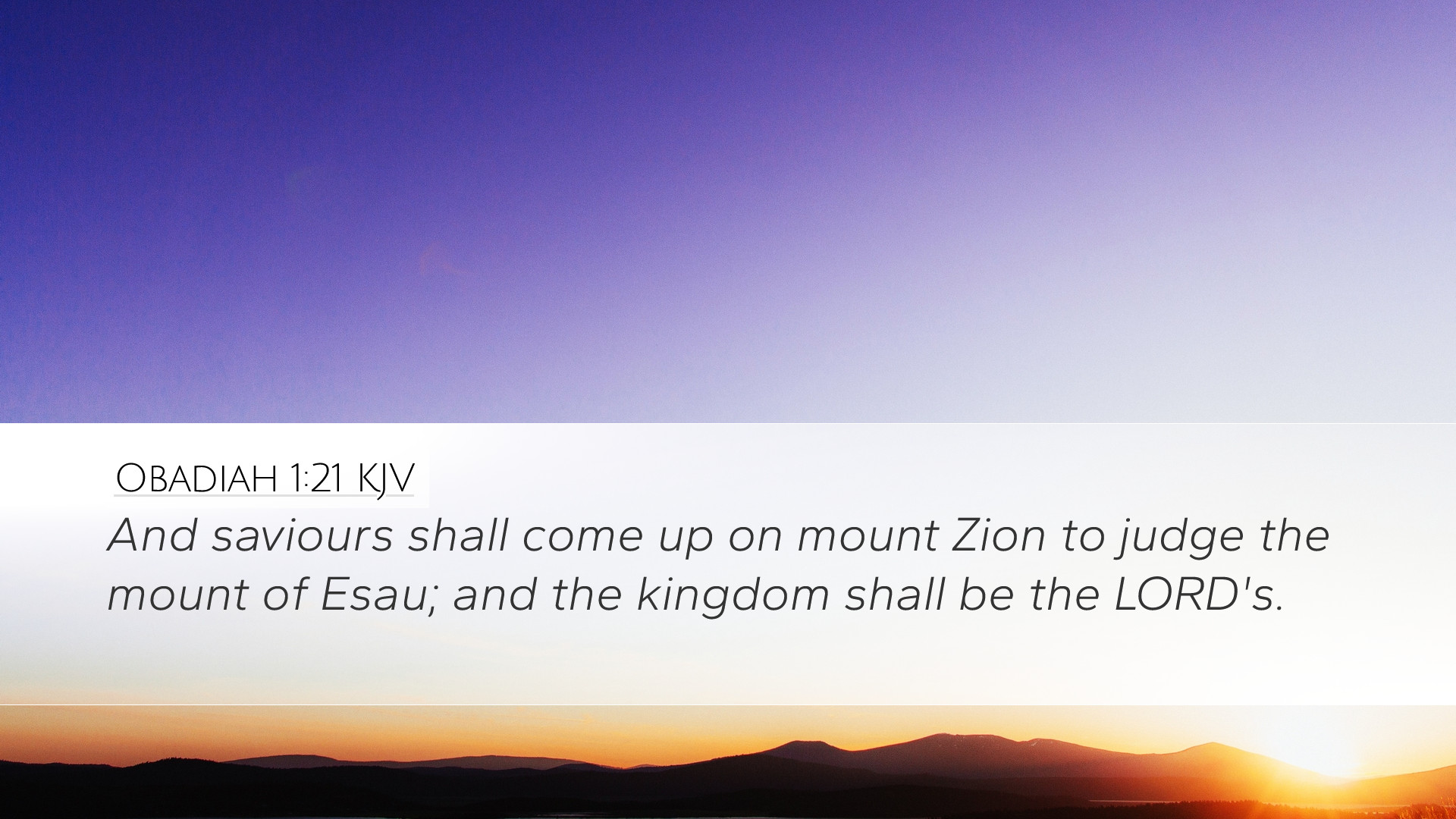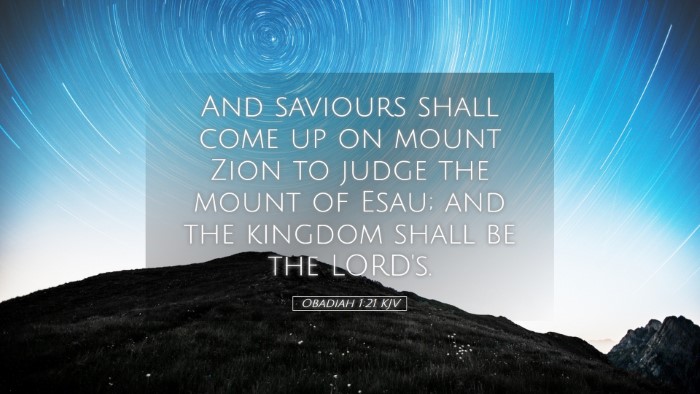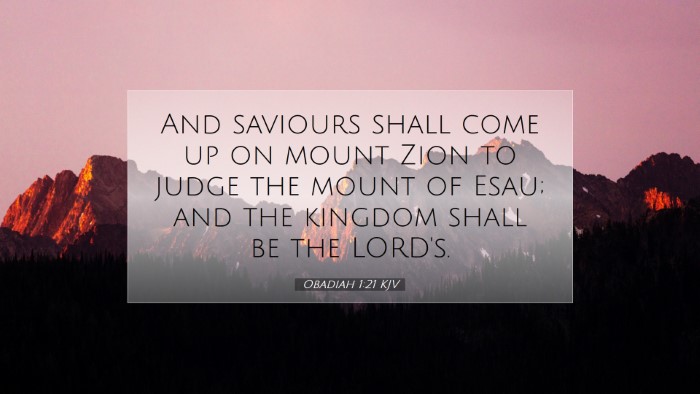Commentary on Obadiah 1:21
The book of Obadiah, the shortest book in the Old Testament, predominantly deals with the theme of God's judgment upon Edom for its pride and violence against Israel during a time of crisis. Verse 21 serves as a climactic conclusion, declaring the restoration of Israel and the ultimate victory of God's people over their enemies.
Verse Context
Obadiah 1:21 states: "And saviors shall come up on mount Zion to judge the mount of Esau; and the kingdom shall be the Lord's." This declare the role of "saviors" who will arise on Mount Zion, calling attention to the restoration of Israel and the righteousness that will flow from God's governance through His appointed leaders.
Thematic Elements
-
The Restoration of Israel: The prophetic vision of Obadiah indicates a time of salvation for Israel, suggesting the emergence of leaders who will guide and protect God’s people. This reflects God's promise of restoration, as He ultimately brings redemption amidst suffering.
-
Judgment on Edom: The mention of judging Esau (Edom) highlights the accountability of nations before God. This theme resonates through many of the prophetic texts in the Old Testament and underscores the expectation that God will ultimately judge nations based on their treatment of Israel.
-
The Sovereignty of God: The phrase "the kingdom shall be the Lord's" encapsulates the overarching sovereignty of Yahweh. It serves as a reminder to the people of God that despite present circumstances or apparent injustices, God reigns supreme.
Insights from Commentaries
Matthew Henry's Commentary
Matthew Henry emphasizes the role of "saviors" as leaders or deliverers who arise in Zion. He indicates that this restoration is not only physical but also spiritual, symbolizing a time when Israel would return fully to worship and obedience to God. Henry points out that this is a clear victory over the enemies of God’s people, with the judgment directed at Edom signifying the reversal of fortunes for those who oppose God's will.
Furthermore, he remarks on the proclaiming of God’s sovereignty through the phrase "the kingdom shall be the Lord's." This reflects God's ultimate authority and His intent to establish His will and righteousness, reinforcing the idea that all nations will be subject to His rule.
Albert Barnes’ Notes on the Bible
Albert Barnes interprets the term "saviors" as divinely appointed leaders who will play a crucial role in the restoration process. He suggests that these saviors may refer to a localized fulfillment within the nation of Israel but also echoes the Messianic overtones that suggest a future and more complete salvation fulfilled in Christ.
Barnes further elaborates that the judgment of Esau signifies the just retribution that awaits those who have acted unjustly towards the people of God. He indicates that this passage gives tremendous hope to the oppressed, reassuring them that God's judgment is certain and that justice will eventually prevail.
Adam Clarke's Commentary
Adam Clarke provides an insightful exploration of the historical context, noting that the vision of Obadiah looks forward to a time when Israel would be free from foreign oppression. Clarke notes that the "saviors" could refer not only to earthly leaders but also to the ultimate Savior, Jesus Christ, who comes to judge both the living and the dead.
Clarke also emphasizes the prophetic nature of the passage which presents God’s recovery plans for Israel as a sign of hope. He affirms the notion that the phrase about the kingdom belonging to the Lord reaffirms God’s reign and justice, prompting believers to trust in God's overarching plan for redemption.
Theological Implications
-
Hope and Redemption: This verse serves as a beacon of hope, portraying God as a redeemer who will not forsake His people. It reminds believers that divine restoration is part of God’s plan, encouraging faith amid adversity.
-
Divine Justice: The confrontation with Edom through the pronouncement of judgment highlights critical theological themes of justice and retribution. It elaborates on the idea that God will ultimately address moral wrongdoing, reminding modern readers that accountability exists for nations and individuals alike.
-
Kingdom of God: The declaration of God’s kingdom emphasizes the importance of His rule in the life of the believer. It encourages reflection on one’s submission to God's reign and actively living out kingdom values in daily life.
Conclusion
In conclusion, Obadiah 1:21 encapsulates the powerful themes of hope, justice, and the sovereignty of God. It serves to remind Christians of the ultimate victory that is promised to God’s people and the assurance that God will judge unrighteousness while establishing His reign over all nations. This powerful prophetic word invites deep reflection on the character of God as a savior and a judge, urging believers to engage with these truths both personally and communally in a world that often feels chaotic and unjust.


